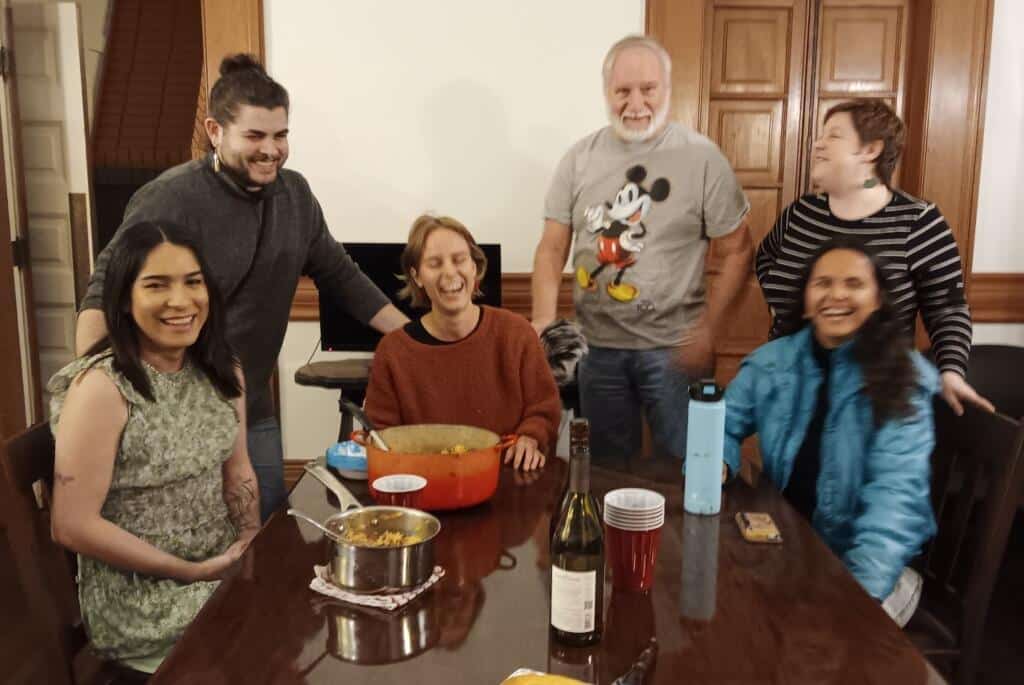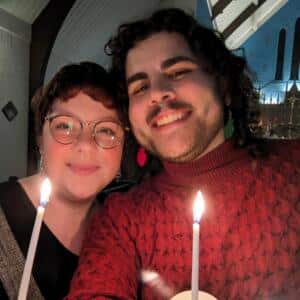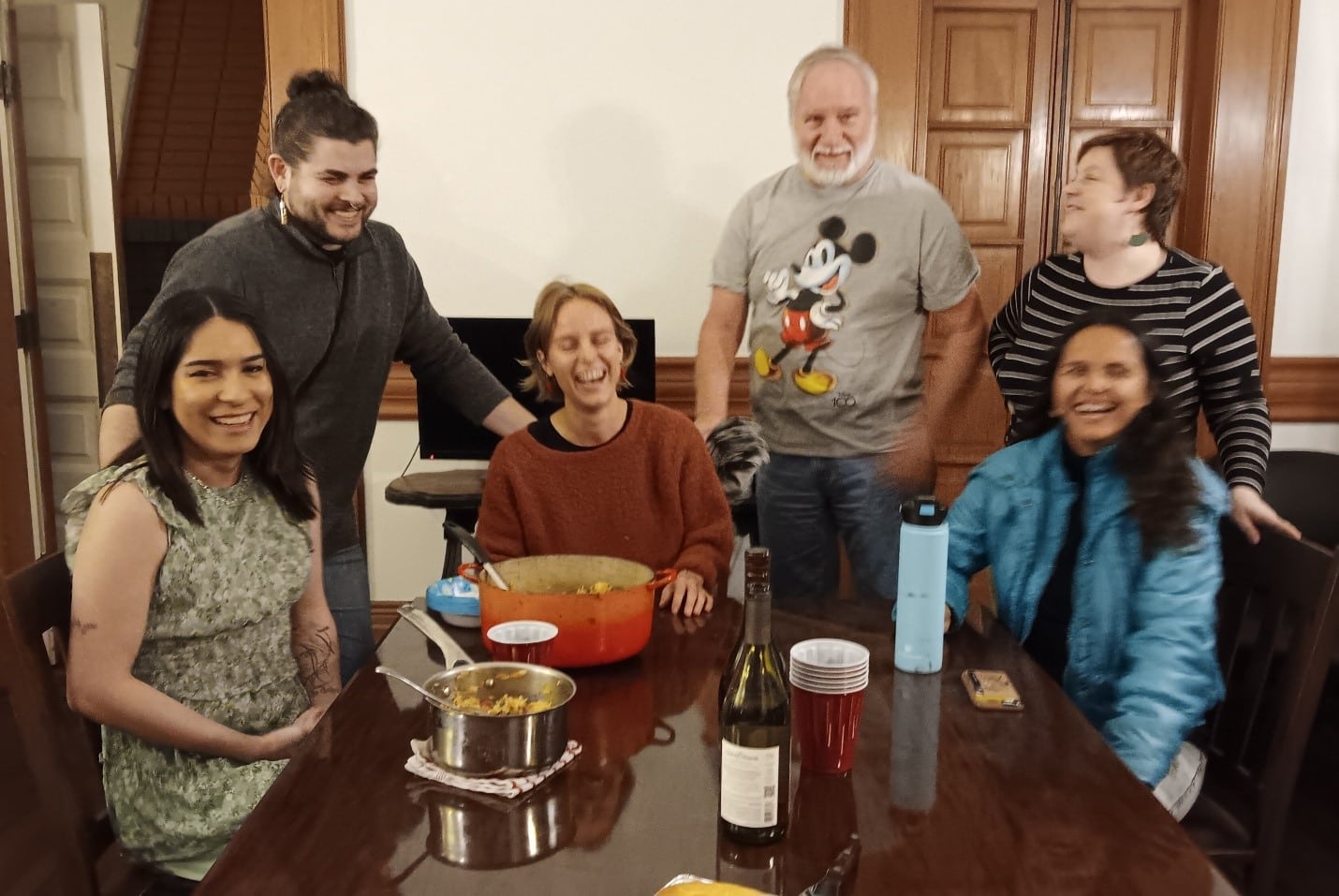 This is the third installment in a series about RISA-NOLA, a Rainbow Initiative Community (RIC) associated with St. Anna’s Episcopal Church in New Orleans. Like other groups formed under the aegis of EMM’s Rainbow Initiative, RISA-NOLA emerged as a local response to the call of The Episcopal Church to raise awareness of and provide aid to LGBTQ+ forced migrants. Read Part 1 here.
This is the third installment in a series about RISA-NOLA, a Rainbow Initiative Community (RIC) associated with St. Anna’s Episcopal Church in New Orleans. Like other groups formed under the aegis of EMM’s Rainbow Initiative, RISA-NOLA emerged as a local response to the call of The Episcopal Church to raise awareness of and provide aid to LGBTQ+ forced migrants. Read Part 1 here.
In Part 2, we traced the factors that led RISA-NOLA to become a community resettlement group, in partnership with local non-profit, Home is Here NOLA. Here, we look more closely at the group’s experiences of providing direct services to LGBTQ+ asylum seekers through this partnership, with on-going support from EMM’s Rainbow Initiative and St. Anna’s Episcopal Church.
* * *
Migrant friends and moving trains
In their first year, RISA-NOLA has worked directly with two newcomers who the group refers to as “migrant friends:” a trans woman from El Salvador, and a trans woman from Mexico. Supporting one newcomer at a time, they have been able to offer a highly individualized welcome. So far, their shared activities have included the following:
- welcome dinners and informal gatherings for coffee or conversation;
- taking a personalized cultural/historical tour to get a feel for New Orleans, and to learn how to use public transportation;
- making trips to an optometrist to replace glasses lost in detention, and to Goodwill and other outlets to find affordable clothes;
- visiting local food pantries and discussing other ways to eat on a limited budget;
- finding a bicycle through a neighborhood swap group;
- participating in food service for a fundraising concert;
- and attending public events such as the St. Joan of Arc parade during Carnival season.
Volunteers have also worked to connect newcomers with local resources such as ESL classes, community medical clinics, job boards, and oriented them to low-cost housing options and the entry-level job market.
While much of their support is initially focused on material needs, the volunteers realize that effective accompaniment must address deeper needs as well. As Claire Brooks, a member of the coordinating committee, put it,
It’s not just a matter of providing food; it’s critical to provide food that reminds people of home. Asylum seekers are strangers in a strange land, in the process of piecing together a new identity. Listening well to their needs, spoken and unspoken, is both a great challenge and a great learning opportunity for all.

RISA-NOLA volunteers gather with a newly arrived “migrant friend” for a welcome dinner.
Randy Lovejoy, who serves on the coordinating committee, observed that the experience for them and other volunteers has been akin to “laying train tracks before a moving train.” 
Part of the sense of rapid movement comes from the changes in policies and laws that frequently upend the immigration process and immigrant welcome space. For volunteers born in the U.S., there is often much to learn – about the complexities of the process of seeking asylum, eligibility for work authorization, and getting by when you cannot work and are not eligible for public benefits.
KB and Randy Lovejoy, of St. Anna’s Episcopal Church and RISA-NOLA
Volunteers must also grasp the multiple overlapping needs of LGBTQ+ asylum seekers, who may face not only linguistic and socioeconomic barriers, but also difficulties in accessing culturally sensitive mental health services and gender-affirming medical care.
RISA-NOLA participants have come to realize how significantly the experiences of being persecuted both at home and during one’s journey, as well as during immigrant detention, can make it hard for LGBTQ+ newcomers to feel safe and to function independently, even once they have been released. Claire Brooks, coordinating committee member, underscored the impact of immigrant detention, where transgender migrants are often held in solitary confinement, purportedly to “protect” them from attacks by other detainees. As she observed,
After weeks in solitary confinement, it is difficult and disorienting to navigate a world in which there is suddenly more freedom. After months of having no agency over any decisions, trying to express a preference for anything — what to eat for dinner, whether to buy new shoes — can be overwhelming. Another side effect of solitary confinement can be short-term memory loss and difficulty planning and retaining upcoming appointments.
Volunteers try to be mindful of the lingering effects of these experiences. “We are learning about trauma-informed support, and what is appropriate” in these circumstances, Randy Lovejoy noted. KB Lovejoy, a coordinating committee member and Randy’s partner, put it this way:
It’s about moving at the speed of this person’s trust in us, and in themselves. It’s so important to honor their experiences and agency.
Waiting and wrangling resources
The long wait for work authorization is particularly challenging. Before they can legally work, asylum seekers must wait six months after filing a formal request for asylum (which can also take time and assistance to prepare). As Claire Brooks notes, “We all need order in our lives and a sense of being productive. Waiting six months is devastating to the human spirit.” Friendships formed along the way, in immigrant detention, shelters, through interactions with supportive organizations, and in random encounters, can make a big difference, as shared experiences and meaningful activities help newcomers feel less isolated.
For RISA-NOLA, partnering with Home is Here NOLA (HiHN) has offered clear advantages, including the non-profit’s role in obtaining migrants’ release from immigration detention and helping provide temporary housing. Nonetheless, as a community resettlement group, RISA-NOLA had to commit to bringing other resources to the table. Given that St. Anna’s Episcopal Church already has a substantial financial commitment to Anna’s Place and other established outreach programs, the RISA-NOLA group recognized that they would have to raise the funds needed to support their “migrant friends,” without making any claims on the congregation’s annual budget.
After calling for individual donations from group members, RISA-NOLA planned a fundraising concert. Held at St. Anna’s in April 2024, it featured the church choir and was emceed by a popular local drag queen. The concert not only raised funds but enabled RISA-NOLA participants to share their goals with a wider audience. They began to see that they needed to educate people about the unique plight of LGBTQ+ forced migrants. As spring 2024 gave way to summer, they realized that an even bigger opportunity to educate and mobilize folks was on the horizon.
Click here to read Part 4 in this series.



